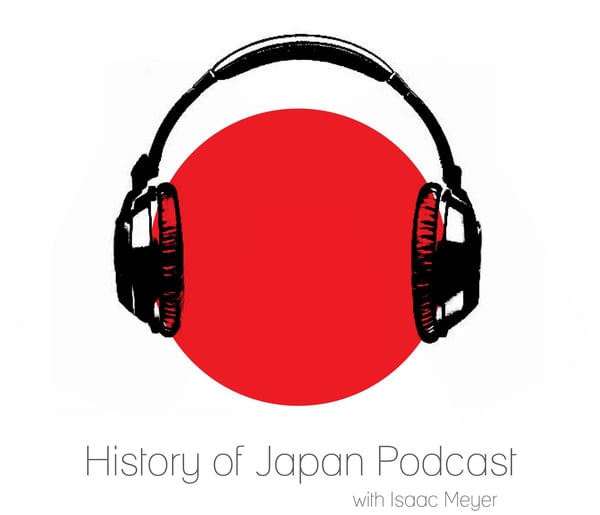Episode 121 - The Fall of the Samurai, Part 5
History of Japan
Isaac Meyer
4.8 • 744 Ratings
🗓️ 10 October 2015
⏱️ 29 minutes
🧾️ Download transcript
Summary
This week, we're going to stop the forward progress of the narrative and focus on two men who are going to have a large impact on the massive political realignment that's coming down the tubes, though they themselves will not live to see it: Sakuma Shozan and Yoshida Shoin. We'll use them to try to answer the question of just how radical the most radical elements in 1850s Japan really were.
Transcript
Click on a timestamp to play from that location
| 0:00.0 | Hello and welcome to the History of Japan podcast, episode 112, The Fall of the Samurai, Part 5. |
| 0:24.9 | Before we get started this week, I just want to point out a pair of quick corrections |
| 0:29.1 | from listener Ian Rapley. |
| 0:31.6 | Ian was kind enough to remind me that Commodore Perry, in fact, did not sail through |
| 0:35.7 | the Straits of Magellan, but took the long way |
| 0:38.0 | around from Virginia to Japan, passed the Cape of Good Hope, ended up through India, and the |
| 0:43.8 | Straits of Malacca. |
| 0:45.9 | Also, the interpreter he hired in Hong Kong actually did speak some Japanese, but the negotiations |
| 0:51.5 | switched to Dutch because both sides found it easier to use, which makes |
| 0:55.5 | sense, since Japanese has a lot of honorifics, gradations of ambiguity, which could be serious |
| 1:01.2 | pitfalls if you aren't used to using them in highly complex and formal gunpoint negotiations. |
| 1:07.6 | So, thank you, Ian, for pointing those out. |
| 1:10.8 | When we left things off last week, the Lords of Japan were divided into rough So, thank you, Ian, for pointing those out. |
| 1:15.8 | When we left things off last week, the Lords of Japan were divided into roughly two camps over what exactly should be done regarding pressure from the West. |
| 1:20.6 | Those who had submitted to the Tokugawa family, before their final victory in 1600, |
| 1:26.5 | wanted to strengthen the power of the central Tokugawa government |
| 1:29.5 | to deal with the West and make concessions to buy time for self-strengthening. |
| 1:34.6 | The outer Tozama Lords, as well as branches of the Tokugawa family itself, |
| 1:39.8 | wanted to decentralize the government and devolve more power to the regional lords |
| 1:44.1 | in order to enable more locally driven policies of self-strengthening. |
| 1:49.0 | As we discussed, this whole split has more to do with the wealth of individual fiefdoms than anything else. |
| 1:56.0 | The domains of the Fudai Dimeo tended to be on the smaller side, and they lacked the wealth to try and independently strengthen their own militaries. |
... |
Please login to see the full transcript.
Disclaimer: The podcast and artwork embedded on this page are from Isaac Meyer, and are the property of its owner and not affiliated with or endorsed by Tapesearch.
Generated transcripts are the property of Isaac Meyer and are distributed freely under the Fair Use doctrine. Transcripts generated by Tapesearch are not guaranteed to be accurate.
Copyright © Tapesearch 2025.

